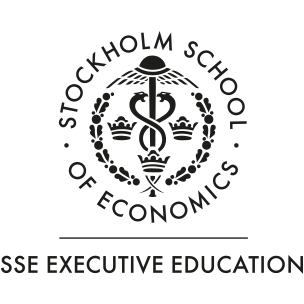
Four reasons to see sustainability as a strategic business tool
Any head of sustainability already knows how important this area is on so many levels. But how do you fully explain the commercial value to the rest of the organization?
Sustainability 2.0: financial value creation
In many respects, the battle to show that sustainability is an essential cornerstone of good, long-term enterprise has already been won. The realization that is now starting to take shape among businesses is what sustainability means as a commercially important competitive tool.
“Over the past five years, there has been a massive intellectual leap and cognitive shift in how companies think about these issues,” says Tommy Borglund, university lecturer at Örebro University and program director for SSE Executive Education’s Sustainability Executive Development.
Tommy identifies four key reasons why companies need to see sustainability as a clear strategic business tool for achieving a competitive edge. These can also help to establish support for the issue internally. The four reasons can be summarized as:
- Sustainable offers meet customer demand
- Carefully selected suppliers guarantee the sustainability chain
- Programs for social sustainability widen the company’s appeal
- Diversity creates broader perspectives
Sustainable offers meet customer demand
As a business you are eventually going to lose customers if you lack a sustainability dimension to the goods or services you offer.
“Sustainability issues are very much on your customers’ radar, and they will express this in various ways. Industrial customers have highly advanced requirements, for example, but the same can be said for every sector. The services they outsource have to be as sustainable as possible, because they form an integral part of the customers’ sustainability work,” argues Tommy Borglund.
Customers who set requirements help you to develop. Instead of seeing them as demanding – embrace the potential in the situation.
Commercially, you can achieve a major advantage by highlighting the specific parts of the business that make a positive difference:
- Do you make more efficient use of resources in some way?
- Do you have better working conditions than other players?
- Do you consistently respect human rights at every level of your business?
Leading the charge to develop sustainable alternatives can definitely be a competitive advantage.
“To meet customer expectations, make sure you quickly get your business up to speed in areas such as carbon footprint reduction, energy efficiency and recycling.”
Carefully selected suppliers guarantee the sustainability chain
The other side of the coin is how your company handles purchasing and the choices you make in terms of suppliers and products. For your delivery to be sustainable, there has to be a common approach running along the whole of the production or service chain: from your suppliers through you to your customers and all they way up the chain.
“There is a clear trend for companies and their suppliers to jointly develop new innovations for sustainability, such as more energy-efficient or climate-friendly products with a lower carbon footprint. The transport sector, for example, is working hard to develop engines with fewer carbon emissions and new logistical solutions that involve more efficient freight packing and so significantly cut journey numbers.”
Programs for social sustainability widen the company’s appeal
When you engage in social issues linked to your own business, you create better relations with the local community and gain an indirect competitive advantage – not to mention encouraging positive social development.
“With tenders in the construction and real estate industry, it’s now very common for municipalities to include aspects of social sustainability in the project specification: from integration and work placements to how the urban district is designed as a mix of offices, housing and preschools,” Tommy explains.
To be attractive as a partner for the municipality, your company needs to have a program for social sustainability that they value. In addition to your basic offer as a supplier, you will then also be contributing to the municipality’s own sustainability work.
Diversity creates broader perspectives
Last but not least, Tommy points out the importance of tackling diversity and gender equality within your workforce. Teams with different backgrounds tend to perform better due to the wealth of ideas that multiple perspectives bring. There are also benefits for customer relations, for example in sales, as the customer will have a better chance of finding someone who meets their needs.
“The dogma – whether conscious or not – that ‘like recruits like’ is fading fast. There are so many competitive advantages to recruiting a broad spectrum of people as a way to bring in new perspectives and skills. We need diverse cultures, not monocultures, in our organizations. It’s a realization that is constantly gaining currency.
Sustainable management for both specialists and generalists
These days, sustainability is a key aspect of a manager’s competence and development. As far as Tommy Borglund is concerned, the strategic perspective is crucial for holding a high position in a company.
“A company’s sustainability work has to be integrated with many dimensions of the business and influences contact with both customers and suppliers. Ultimately, to translate sustainability into good business, heads of sustainability and other managers need to learn from each other’s skills and perspectives.”
Want to find out more?
SSE Executive Education’s Sustainability Executive Development program focuses on giving organizations the right knowledge and tools to achieve a breakthrough with their sustainability work. Together, managers who are responsible for sustainability and business gain more in-depth knowledge of the conditions, requirements and expectations that surround and affect the respective areas of responsibility.
The aim is to reach a mutual understanding and find a language for working successfully on sustainability-related issues based on shared ambitions and objectives.



